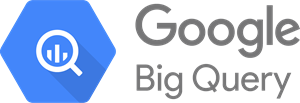Challenge
Eliminating shadow IT by facilitating self-service analytics
While Cardinal Health was leveraging data for business operations, its antiquated systems weren’t sufficient for modern self-service analytics. The company grew rapidly through acquisitions over the years, so Cardinal Health relied on a fragmented set of systems that were difficult to manage and govern effectively.
The company needed to forecast six months in advance to make sound business decisions, but business analysts across the pharmaceutical, corporate, and medical business lines didn’t have easy access to data for analytics and reporting. In addition, many business systems analysts (BSAs) were using shadow IT or unapproved applications to track metrics. As Cardinal Health moved into the future, the company needed to simplify its data landscape to streamline data and analytics access throughout the organization.
“We took a step back, looked at our data landscape, and realized we have too many platforms and too many copies of data in different places,” stated Jenni Wheeler, Director of Data & Analytics at Cardinal Health. “We decided we’re going to create a new enterprise data and analytics platform, with AtScale as the semantic layer.”
Solution
AtScale’s semantic layer enables organization-wide data access
When Cardinal Health set out to build a new data and analytics platform, the company chose to leverage Google BigQuery and AtScale’s Semantic Layer, which allows business users to access data using business intelligence (BI) tools like Excel and Tableau. That means business users now perform self-service analytics using the BI tool of their choice.
Moreover, AtScale enables data sharing in a way that wasn’t possible before. In the past, Cardinal Health’s major business lines — pharmaceutical, corporate, and medical — were managing data separately in a variety of systems. By implementing a semantic layer, the company is now able to more easily share this disparate data to generate better overall business insights.
“It’s not just pharmaceutical data. It’s also corporate and medical data all in the same place,” Wheeler explained. “So we’re not only sharing data internally and externally, but we’re sharing across segments, which is a capability that we didn’t have at Cardinal Health to date.”
Results
Streamlining self-service data analytics through better governance
When building out its new data and analytics platform, Cardinal Health partnered closely with its data governance team to break down legacy silos so that its modern data analytics program aligns closely with business teams’ goals and workflows. These efforts have enabled the organization to eliminate the shadow IT applications that business analysts had relied on previously.
Using AtScale’s semantic layer, Cardinal Health has also been able to create a universal source of truth for the organization. AtScale ensures certain metrics are clearly defined across different teams to simplify self-service data analytics sourcing from numerous data systems. This also makes it possible to reliably access the same data from different BI tools for more accurate reporting.
After launching this data and analytics platform with AtScale, Cardinal Health has been able to scale the rollout to over 200 users. In the near future, Cardinal Health expects to have over 1,000 business users leveraging self-service analytics across the organization.
“Our IT team has just as much to learn from our business partners as they have to learn from us,” concluded Wheeler. “We might know how to move data around and build models, but we have to have that business knowledge in order to have a larger impact.”




